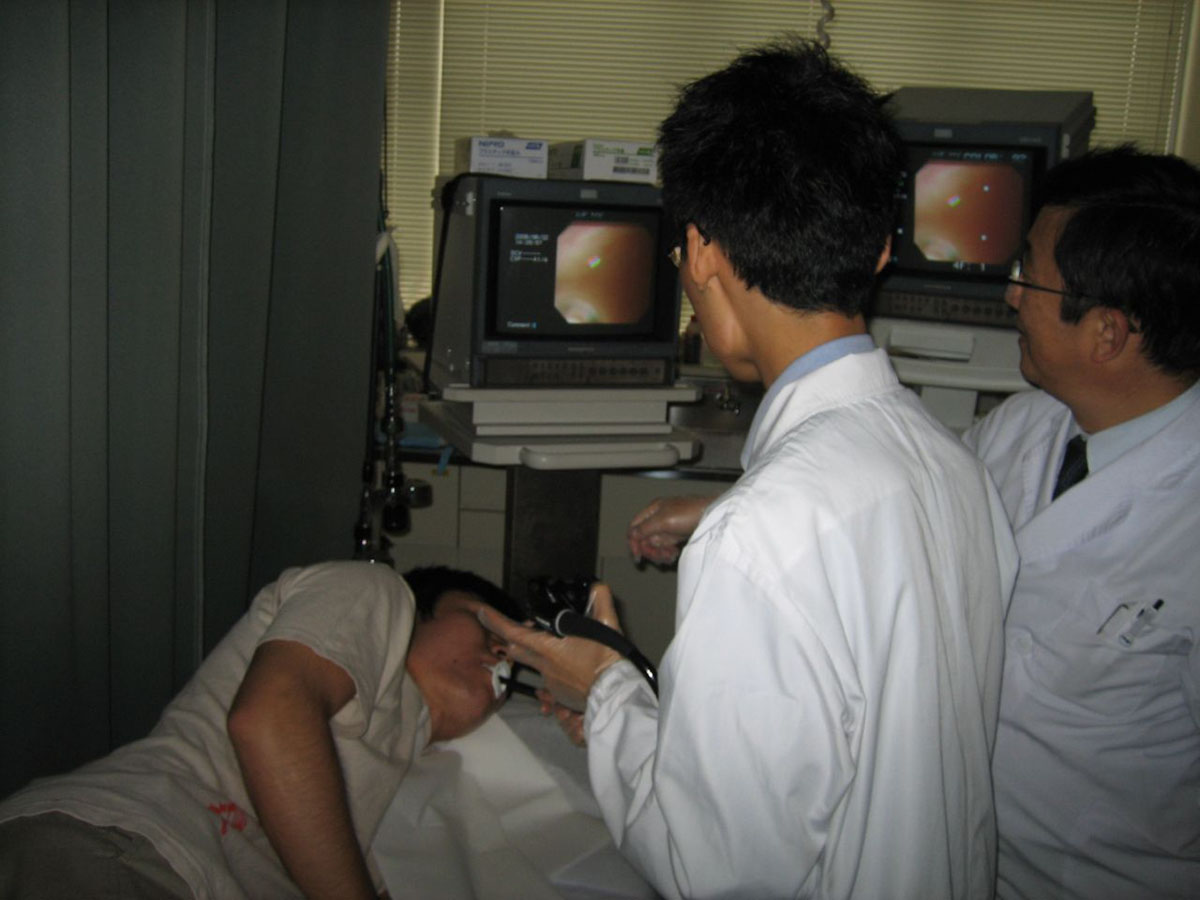Table of Contents
Peptic ulcer disease should not be taken lightly. It should be properly diagnosed and treated under medical supervision.
Most people self-diagnose it as “acidity” or heartburn and try to self-treat it with antacids or even NSAIDs.
This may relieve the symptoms for a short period but can lead to complications in the long run. Therefore, always consult a gastroenterologist for proper management.

How Is PUD Diagnosed?
Your symptomds and medical history will clue your doctor in to the possibility that you have a peptic ulcer. The doctor will then rule out some common causes. Tell your doctor if you are regularly taking NSAIDs for pain relief. The doctor will order some tests to confirm the diagnosis.You can expect to undergo some of the following diagostic tests.
Testing For H Pylori: Ulcers caused by H pylori infections are treated differently, so it’s important to detect the presence of H pylori in your stomach. Three tests may be used:
- Urea Breath Test: In this test, you will ingest a fluid containing radioactive urea. If H pylori are present in your stomach, they will convert the carbon of the urea into carbon dioxide, which will be detected in your exhaled air.
- Blood Test: Blood tests can detect the antibodies against H pylori in your blood.
- Stool Test: Testing your stool can detect the antigen of H pylori bacteria in your stool.
Endoscopy: During an endoscopy, the doctor will insert a long narrow tube with a camera down your throat in order to visualize your stomach and duodenum. Most ulcers can be seen easily. Endoscopy is also used to look for any bleeding points in the stomach and to take a biopsy from the ulcer. This biopsy will confirm the presence of H pylori.
Upper GI X-ray: This X-ray is usually taken after the patient drinks barium (barium Swallow). Barium coats the upper GI tract and ulcers can be detected on the X-ray.
Peptic Ulcer Disease Treatment
Treatment of peptic ulcers is directed at two things: eradicating H pylori from your stomach and decreasing acid production. During the course of your treatment, you may be prescribed some of the following medications:
- Proton Pump Inhibitors: These drugs reduce the acid production inside the stomach. Proton Pump Inhibitors are widely used now. Examples are Omeprazole, esomeprazole and pantoprazole
- Antibiotics for H. pylori: If the cause of your peptic ulcer is a H pylori infection, the treatment is directed towards eradication of this bacterium. Usually, a three-drug regimen is used with at least two antibiotics and a Proton Pump Inhibitor.
- H2 Blockers: These drugs are also effective in reducing the stomach acid production. Examples include cimetidine, ranitidine and famotidine.
- Medications that protect the stomach wall: Bismuth subsalicylate (Pepto-Bismol) and sucralfate directly protect the stomach wall from acidic damage. Misoprostol releases protective chemicals in the stomach. Antacids are also used to neutralize the acid.
Lifestyle Changes After Your Peptic Ulcer Disease Diagnosis
Switch your diet to healthy and fresh vegetables and vitamin rich foods. Avoid smoking, alcohol and even carbonated drinks. Stress may worsen the symptoms, so avoid stressful conditions. Stick to using the pain killers your doctor recommends; Acetaminophen (Paracetamol) may be the best option.
Even if the peptic ulcer is successfully treated, there is a good chance that it can happen again, so maintain a healthy lifestyle to avoid recurrence.
- Janet M. Torpy, MD, Writer
- Cassio Lynm, MA, Illustrator
- Robert M. Golub, MD, Editor
- JAMA. 2012
- 307(12):1329. doi:10.1001/jama.2012.184.
- By Ed Uthman, MD. [Public domain], via Wikimedia Commons
- By Ed Uthman, MD. [Public domain], via Wikimedia Commons
- Photo courtesy of Yuya Tamai via Flickr: www.flickr.com/photos/tamaiyuya/180619235


Your thoughts on this